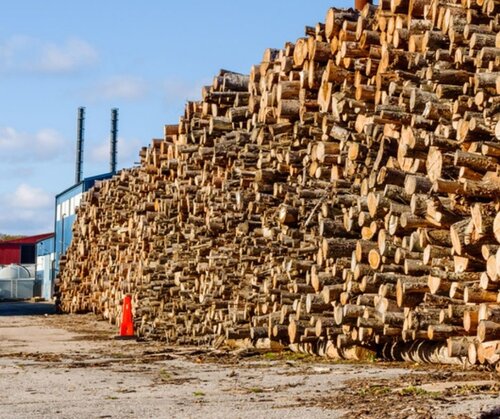
The war in Ukraine has pushed the EU’s energy mix to the top of the agenda. Questions abound: how to increase the EU’s “energy security” and phase out our reliance on Russian gas? How to do so without caving in to the temptation to send healthy forests up in smoke? And how to ensure the EU’s response focusses on systemic interventions to reduce consumption?
All energy sectors have positioned themselves as viable alternatives to Russian gas, and the forest industry was quick to jump on the bandwagon. Bioenergy lobbyists have called on the EU to “stop hesitating on bioenergy’s concrete contribution”, while Sweden’s forest industry urges “everyone to be clear” that “forest-based bioenergy plays a significant role in securing energy supply in a troubled world”.
An EU Commission study found that 32 per cent of the EU’s overall renewable energy mix comes from burning forests to produce energy. Over-reliance on bioenergy to achieve renewable energy targets has had dire consequences: biodiverse forests are being replaced by monocultures, EU forests’ ability to store carbon is decreasing, forest jobs are declining.
In July 2021, the Commission tacitly recognised the negative impacts of such over-reliance; its proposal to review the renewable energy directive (REDIII) would exclude certain forms of forest biomass from eligibility for renewable energy targets and related State Aid. NGOs, including Fern, call for the exclusion of all forest biomass from REDIII.
The Commission’s REPowerEU plan, released 8 March 2022, considers options to phase out relying on Russian gas, stating that “Putin’s war demonstrates the urgency of accelerating our clean energy transition”. It is a good sign that the plan does not mention forest biomass as a desirable replacement.
In parallel, EU policymakers are discussing REDIII. In the European Parliament, at least, it seems that the war in Ukraine will not disrupt a compromise taking shape that excludes forest biomass from State Aid.
The situation in the European Council looks grimmer. Certain EU countries have already earmarked bioenergy as an alternative. France recently announced that it would encourage phase-out of (Russian) gas by subsidising pellet heaters. This is despite the fact that Russia is one of the world’s largest wood pellet exporters, with half its export going to Sweden and Denmark, and expanding to other European countries.
The situation looks more worrying for broader EU environmental policies. Given a spike in such agricultural commodities as wheat, agribusiness is calling to ditch environmental provisions in the name of food security. The Commission has heard, proposing an “exceptional and temporary derogation to allow the production of any crops for food and feed purposes on fallow land” in another recent Communication.
The Commission also recently announced it will postpone its EU Nature Restoration Law proposal, triggering opposition.
Three days after Russia invaded Ukraine, the Intergovernmental Panel on Climate Change (IPCC) released an alarming report on the effects of climate change on nature, people’s lives and infrastructure, highlighting our “brief and rapidly closing window of opportunity” for meaningful climate action. They urged restoring forests and improving the sustainability of managed forests to enhance our resilience to climate breakdown.
We cannot afford more delay. Discussions about the EU’s energy security must include climate change and biodiversity. Security is not only about avoiding reliance on authoritarian regimes today. It is about preventing and adapting to disasters in the making. Ramping up bioenergy use would emit more carbon dioxide while destroying our few remaining forests, making us more vulnerable to the unfolding climate disaster and undermining our resilience to future shocks.
Reducing our consumption will be a factor in achieving security. In March, High Representative of the EU for Foreign Affairs Josep Borrell called on EU citizens to cut their gas use. Similarly, the spike in wheat price is problematic because it makes animal feed for meat production more expensive. Instead of weakening environmental provisions, NGOs argue that we need to work on systemic changes that will reduce our consumption of meat and biofuels for the long term.
Categorias: News, Forest Watch
